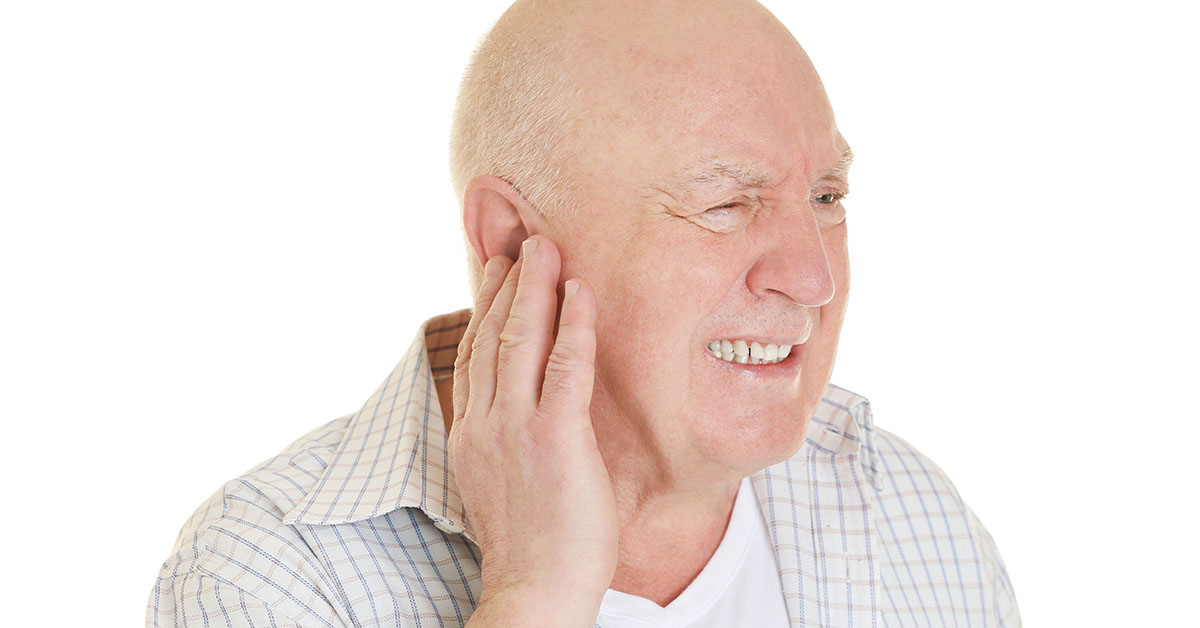
What is Tinnitus?
Tinnitus is the perception of a ringing or noise in an individual's ears. Tinnitus is not the same for everyone and can include intermittent or continuous ringing that affects one or both ears. The perceived sound can vary between a low and high pitched noise, often sounding like ringing, hissing, humming, or buzzing.
Causes of Tinnitus
Tinnitus is generally a symptom of an underlying cause or condition. The most common causes of tinnitus include the following:
- Excessive ear wax buildup or blockage, particularly if it impinges on the eardrum.
- Age related hearing loss that typically starts at around age 60.
- Loud noise exposure such as loud music, equipment, and/or firearms.
- Ear infections.
- Osteosclerosis, which can cause changes or stiffening of the ear bones.
- Stress, depression, lack of sleep, fatigue, or anxiety.
Other, less common causes of tinnitus may include the following:
- Muscle spasms in the muscles in the ear, sometimes caused by neurological diseases such as multiple sclerosis.
- Abnormality in the ear or hearing nerves of the brain, which is sometimes the result of trauma or a tumor.
- Medications, including some aspirin, antibiotics, antidepressants, or cancer medications.
- Malfunction of the Epmrxcontentustachian tube, typically involving the tube remaining expanded at all times. This malfunctions can be caused by substantial weight loss, pregnancy, or radiation therapy.
- Blood vessel disorders, including high blood pressure, turbulent blood flow, Arthersclerosis (age related), or Arteriovenous Malformation (malformation of arteries and/or veins).
Symptoms and Diagnosis of Tinnitus
Your ENT specialist will diagnose the tinnitus based on your symptoms and their examination. When no specific cause of the noise can be identified, except hearing loss, you'll be diagnosed with primary tinnitus. When one of the above mentioned underlying causes is identified, you'll be diagnosed with secondary tinnitus and treatment options will be considered.
Treatments for Tinnitus
The saying, "An ounce of prevention is worth a pound of cure," holds true with Tinnitus. Proper prevention (or worsening) of tinnitus includes taking the following precautions.
- Minimize your exposure to excessively loud noises by either using appropriate hearing protection or decreasing the volume of headphones or speakers.
- Improve your cardiovascular health through regular exercise and eating healthy.
Treatment of already occurring tinnitus will depend on your ENT specialist's diagnosis, as different underlying causes are treated differently. Treatment may include the following:
- Removal of excessive earwax that may be causing or worsening symptoms of tinnitus.
- Treatment of the underlying cardiovascular or blood vessel condition, which may include medication or surgery.
- Altering medication or prescriptions if your current medication is causing or affecting your tinnitus.
- Noise suppression devices, such as hearing aids, masking devices, white noise machines, or wearable tinnitus restraining devices for when the tinnitus cannot be treated directly.

